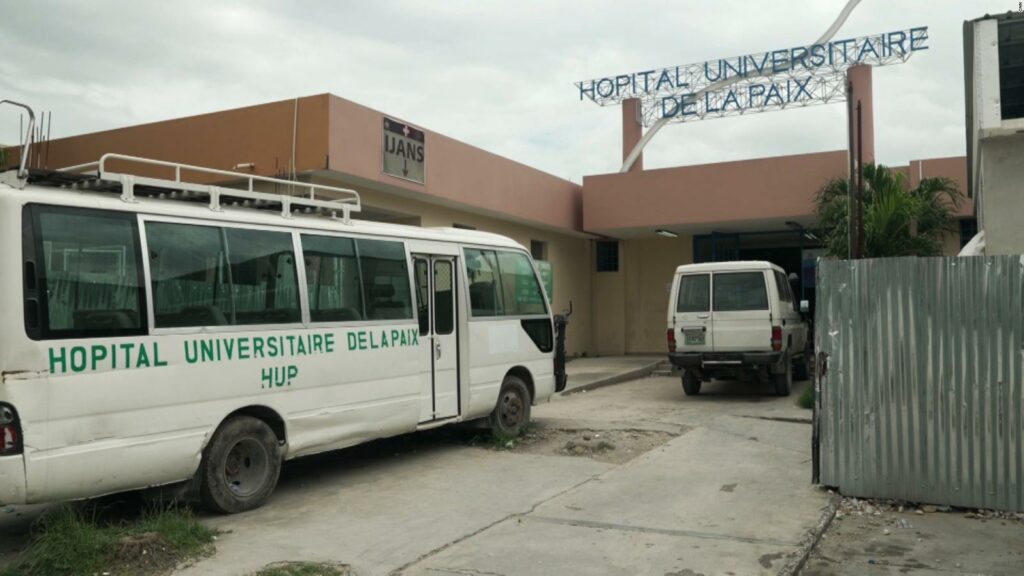Amid a cascade of crises, Haiti’s fuel shortage could be the worst

Footsteps echo through empty hallways. The normal beeps and whirs of hospital equipment are absent. The organized chaos of a city emergency room is replaced by empty chairs strung with caution tape. The stillness is pierced only by the occasional cry of a child, about two years old, lying on her belly in a crib in the hospital’s pediatric unit. She is one of the only patients currently admitted in what is usually one of Haiti’s largest, busiest hospitals.The vast majority of those who show up to the front door are being turned away.”It’s too painful to count [how many we’ve turned away],” said a first-year medical resident named Rachelle, who asked CNN not to use her last name. The hospital, said Rachelle, cannot accept patients because it simply cannot provide them care. A matter of life and deathIt’s still too early to assess the toll that the current fuel shortage has taken on public health. But when Kedner Pierre wakes up every morning these days, the director of Haiti’s largest cancer treatment center at Innovating Health International (IHI), his first worry isn’t chemotherapy or patient visits or paying the bills — it’s gasoline.”We are scrounging, buying one or two gallons of gas at a time,” he told CNN. “It’s completely unsustainable. I am extremely frustrated.”The center is still seeing patients and doing its best to not interrupt the crucial services it provides to Haitians, no matter their ability to pay.But the effects of the gas shortage are readily apparent all around the center. Sonogram and X-ray machines sit idle, as the generator that powers them can only be run sporadically. Operations are canceled and rescheduled depending on fuel availability to run the operating room.A bank of refrigerators that line a wall in a darkened room filled with medicines for chemotherapy have been turned off. Pierre puts ice in the refrigerators to keep the medicine from spoiling.The facility does have a solar power system but the power it generates has to be allocated to the most essential pieces of equipment, including the freezer that holds 2,000 doses of the Moderna Covid-19 vaccine.Even if the hospital were able to accommodate more patients, many people in need of care cannot find transportation, jeopardizing the life-saving treatment plans designed by IHI staff.”If the patient can’t come to take the medicine, to take the chemotherapy, the patient can die,” said Pierre. “This is a huge problem for us.”CNN’s Natalie Gallon and journalist Etant Dupain contributed to this report.





